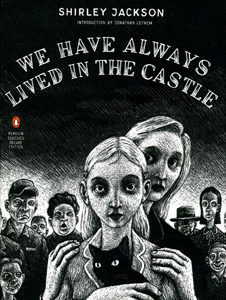THE SIMPLE JOY OF REREADING TO BREAK A READING SLUMP
Julia Rittenberg has a confession to make:
I used to have a great deal of anxiety around keeping up with others’ reading paces. Social media heightened my awareness of reading habits, and worries that my own were woefully behind. I would be unable to choose a new book to read, so my anxiety would continue to build. Consequently, I would stop reading altogether (outside of schoolwork) for months at a time.
A result of her reading slump was that she continued to document on social media books she wanted to read instead of reading more books.
When her TBR stacks of books “deemed Culturally Important [began] to feel a bit like homework,” she rediscovered her reading mojo by rereading Fangirl by Rainbow Rowell. This book reminded her why she likes reading so much and helped her overcome her reading slump. Now, instead of avoiding books she doesn’t especially want to read, she has a stack of books she’s itching to read, all because she reread an old favorite that continues to inspire her.
Like most readers, I’ve often felt that I’ll never be able to keep up with all the new, interesting, publicly touted books that seem to come out almost daily. But my reading slumps are usually triggered more by simple time constraints than by an inability to find a book that grabs me. (See my tsundoku .) However, I have, more than once, chosen to get back into reading by rereading an old favorite book that reminds me how powerful reading can be.
How about you?
What methods do you use to help dig your way out of an occasional reading slump”
READING WHILE CHRONICALLY ILL OR, THE BOOKS WILL WAIT
Abby Hargreaves’s reading slump was quite different from Julia Rittenberg’s. After two family deaths prevented her from reading for pleasure, she discovered that she had a chronic disease that drained both her time and her energy.
Reading while chronically ill (and, in those first several months, still actively grieving the loss of my only sibling and grandmother) was near impossible. Though I craved the escape of a good book, I just couldn’t manage it. There was the holding of the book, which took physical effort, and paying attention to the plot, which required mental strength. Since I lacked both of these things, reading anything substantial was pretty out of the question.
And from this experience she learned a valuable lesson:
Reading can be a wonderful escape, but it need not add extra pressure to our lives. You can’t read on empty—be kind to yourself. Be well, when you can. And read when you’re ready. The books will wait.
And the comments on this article suggest that Hargreaves’s message resonates with others.
20 DEBUT WORKS OF FICTION BY WOMEN OVER 40
It’s not unusual to come across lists of young writers, particularly young women writers. While these lists showcase young people’s achievements, where are the opportunities for older people, particularly older women who may have had to postpone undertaking a writing career while focusing on the more traditional expectations for women: caring for a home and children?
But, according to Jenny Bhatt:
there are also many successful examples to serve as role models and provide ongoing inspiration for older writers—or aspiring writers of any age.
Below is a list of women writers who debuted works of fiction at or after the age of 40 and went on to achieve even more success. While not exhaustive, it shows clearly that women writers are not past their prime after a certain age. In fact, many are not even “late-bloomers”—they have simply deferred publishing due to family or career commitments. But the most striking aspect that unites all of these works is how each incorporates the collected, distilled wisdom, a lifetime of reading, and the sheer radicalism that could not have been possible for a younger writer.
Enjoy Bhatt’s list, which includes the following authors:
- Penelope Fitzgerald, age 60
- Mary Wesley, 71
- Harriet Doerr, 74
50 MUST-READ BOOKS WITH UNRELIABLE NARRATORS
 Oh, I do love me an unreliable narrator: Rebecca and My Cousin Rachel by Daphne du Maurier, Gone Girl by Gillian Flynn, Eleanor Oliphant is Completely Fine by Gail Honeyman.
Oh, I do love me an unreliable narrator: Rebecca and My Cousin Rachel by Daphne du Maurier, Gone Girl by Gillian Flynn, Eleanor Oliphant is Completely Fine by Gail Honeyman.
Here’s a treasure trove of books with unreliable narrators, including many of which I’ve read and a whole bunch of new ones for me to add to my reading list.
How about you?
Do you enjoy reading a story told by an unreliable narrator? Which of the books listed here have you read? What other unreliable-narrator books do you recomment?
THE APPEAL OF THE TIME-TRAVEL ROMANCE
I find the trope of time travel fascinating; see, for example, 13 + 1 Books That Feature Time Travel.
in this article Alyssa Fikse examines time travel as a recurring trope in romance:
In particular, time travel and other time-related complications pop up again and again. Whether they’re communicating via time bending mailbox (The Lake House), kept apart by centuries as a plastic centurion (Doctor Who), or powered by genetic anomalies both charming (About Time) and devastating (The Time Traveler’s Wife), this obstacle has long been a popular stalwart in the romantic canon.
Specifically, she asks, “What keeps us climbing back into time machines or touching ancient stones in search of romance?” She concludes that the time-travel romance remains such a robust subgenre because it shows us that love can truly conquer all:
Can your wife find you despite being separated by centuries and continents? No? Well, we have this particular fantasy for that.
© 2018 by Mary Daniels Brown

